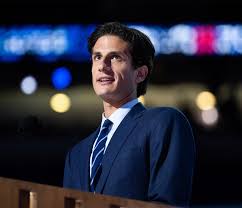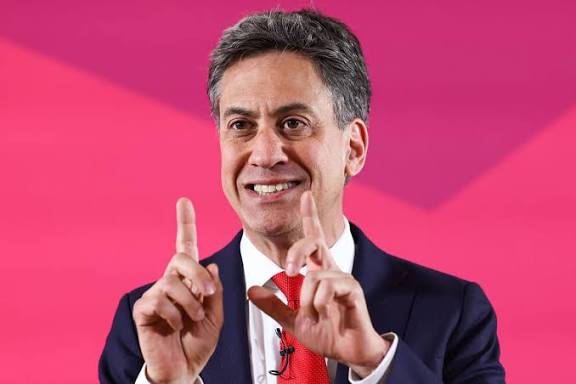Treasury Chief Warns Musk: Stay Out of Government Decisions

Elon Musk has formed ‘America Party’ in disagreement with Donald Trump’s tax bill. This follows Musk’s earlier support for Trump. Today we will discuss about Treasury Chief Warns Musk: Stay Out of Government Decisions
Treasury Chief Warns Musk: Stay Out of Government Decisions
In a dramatic escalation of tensions between Elon Musk and the U.S. Treasury’s leadership, Treasury Secretary Scott Bessent has publicly admonished Musk to steer clear of political maneuvering and focus on his companies instead. The warning comes amid mounting controversy over Musk’s role in the so-called Department of Government Efficiency (DOGE) and its intimate involvement in federal payment systems. Critics argue that Musk’s influence over government finances risks undermining constitutional norms, ethical safeguards, and institutional trust.
This article explores the background of the dispute, the key actors, the significance of DOGE’s access to the Treasury, and the broader implications this clash holds for governance and democracy.
Background: Musk, DOGE, and the Treasury
To understand the conflict, one must first grasp what DOGE is and why Musk is so deeply involved.
DOGE: The Department of Government Efficiency is a task force created to streamline, audit, and reduce what Musk and aligned officials see as waste and corruption in federal spending. It was established under President Trump’s administration, with Musk serving as a senior adviser.
Musk’s role: Beyond his well-known leadership at Tesla, SpaceX, and other ventures, Musk has become an influential figure in government cost-cutting efforts. His critics argue that this dual role creates a conflict of interest: as a private businessman, he benefits from government contracts; as a government efficiency czar, he scrutinizes and potentially restricts government spending.
Allegations of fraud: Musk has repeatedly claimed that the U.S. payment system is deeply inefficient. He alleges $100 billion per year of potential fraud, particularly in entitlement payments. To address this, he and his DOGE allies have proposed stricter auditing protocols, a “do-not-pay” list, and mandatory categorization codes for government disbursements.
What Sparked the Treasury Chief’s Warning
Musk Launches the “America Party”
One immediate trigger was Musk’s announcement of a new political organization, the America Party, which he launched in response to a controversial tax-and-spending bill. In response, Treasury Secretary Bessent urged Musk to “focus on his business activities, not his political activities.”
Bessent argued that the boards of Musk’s companies, such as Tesla and SpaceX, likely want him to remain focused on his enterprises rather than chasing a political agenda. He suggested that Musk’s political ambitions risk distracting him from his core responsibilities — both corporate and governmental.
Access to Treasury Payment Systems
Another major flashpoint is DOGE’s access to the Treasury’s payment infrastructure. In a letter to Congress, Treasury officials stated that Musk’s team had been granted read-only access to the payment system. This access sparked outrage in some quarters, especially as the Treasury processes trillions of dollars annually — including critical payments like Social Security, Medicare, and tax refunds.
Treasury Secretary Bessent, however, has defended the move. He insists that the read-only access does not interfere with the disbursement of payments. According to him, “payments themselves were not being touched.” But opponents remain deeply skeptical.
Alarm from Former Treasury Officials
A particularly damning critique came from a group of five former U.S. Treasury Secretaries, including heavyweights like Janet Yellen, Timothy Geithner, and Lawrence Summers. In an op-ed, they warned of serious constitutional and security risks:
Checks and balances undermined: They argued that giving Musk’s DOGE team control — even limited — over core payment systems could erode congressional authority.
Risk to public trust: Selectively suspending or altering payments could constitute a “form of default,” they said — a breach of trust with millions of Americans depending on federal disbursements.
Cybersecurity and national security: The former secretaries raised red flags over potential vulnerabilities if politically aligned actors gain control over payment infrastructure.
Ethics and Conflict of Interest Concerns
Ethics experts and watchdogs have also weighed in on Musk’s growing influence. Musk’s overlapping roles raise serious concerns:
He holds significant financial interests in companies that contract with or are regulated by the agencies he’s supposed to be auditing.
The mechanisms meant to prevent conflicts of interest, they argue, are being weakened: oversight offices have been dismantled, and ethics rules diluted.
There is suspicion that Musk could use his access to governmental data for his own private enterprises — for example, using sensitive government data to train his AI systems.
The Fallout So Far
Resignation of Key Treasury Official
One dramatic outcome of this struggle was the departure of David Lebryk, a longtime Treasury official. Lebryk reportedly resisted allowing Musk’s DOGE operatives access to the Treasury’s payment infrastructure. After the standoff, he was placed on leave and then abruptly resigned.
His exit has been viewed by many as a symbol of institutional pushback against Musk’s push to transform how government handles money.
Legal and Political Battles
Congressional scrutiny: Lawmakers have sent pointed letters to the Treasury, demanding answers about how and why Musk’s team gained access.
Lawsuits: Civil society groups and political actors have filed lawsuits challenging DOGE’s role, citing constitutional overreach and privacy risks.
Public trust erosion: Reports of internal resistance amplify fears that democratic safeguards are being sidelined for efficiency gains.
Why This Matters: Bigger Themes in Play
The clash between Musk and the Treasury touches on several deeper and more systemic issues:
1. The Balance Between Efficiency and Accountability
Musk sells reform as cost-cutting and modernization: better tracking of payments, more transparency, elimination of waste. These are legitimate goals. But critics argue that without robust oversight and institutional checks, efficiency can undermine accountability. If one unelected individual or team gains too much influence, power becomes unbalanced.
2. Conflicts of Interest in the Modern State
Musk is not just a public servant; he is one of the most powerful private entrepreneurs in the world. His companies benefit directly from government contracts and subsidies. When a private actor with massive business interests becomes deeply embedded in government cost-cutting mechanisms, the risk of self-dealing naturally arises.
3. Constitutional Legitimacy
As former Treasury secretaries have emphasized, the power to decide how taxpayer money is spent rests with Congress. If executive actors — especially private businessmen — begin selectively controlling payments, that could represent a fundamental shift in how democratic checks function. This raises long-term questions about executive power and constitutional governance.
4. Institutional Integrity and Trust
Government payment systems are among the most fundamental pillars of public trust. Millions rely on them for social security, veteran benefits, Medicare reimbursements, and more. When private actors intervene in these systems, even with “read-only” access, it raises alarm bells about the sanctity and neutrality of public institutions.
5. The Role of Billionaires in Democracy
Musk’s case is part of a broader trend: ultra-wealthy individuals increasingly influence public policy directly, not just through lobbying but through holding quasi-governmental roles. This blurs the traditional lines between public service and private enterprise, making it harder to ensure that policies are made in the people’s interest — not that of a few powerful magnates.
Counterarguments and Musk’s Defense
Of course, Musk and his allies have responses and justifications for their critics. Here are some of the key counterpoints:
Read-Only Access vs Control
Bessent and others emphasize that DOGE’s access to the Treasury’s systems is “read-only.” According to them, Musk’s team monitors but does not direct payments. This is framed as purely a reform measure: oversight, not micromanagement.Real Problem of Fraud
Musk’s allegations about $100 billion in potential fraud are not fanciful. He claims that a large percentage of entitlement payments go to people without Social Security numbers or to entities that may not be legitimate. By putting more controls, he claims, inefficiencies can be rectified, and taxpayer funds better protected.Necessity of Reform
Supporters argue that the federal bureaucracy is bloated, inefficient, and unaccountable — building systems that Musk’s team is uniquely positioned to fix. The creation of DOGE was a bold attempt to reduce waste and optimize governance.Musk’s Statement on Political Role
Musk has claimed that being in government is actually disadvantageous for his companies. According to him, if he weren’t in a government role, he might be able to lobby more and benefit his companies more directly — something he says he doesn’t do because of his public role.Self-Policing Ethics
The White House has said that Musk will recuse himself from decisions where there’s a conflict of interest. According to this view, ethical concerns are being managed, though critics are far from reassured.
Risks and Potential Downside
While Musk and his supporters frame DOGE as a reform vehicle, the risks remain significant:
Constitutional Overreach: If unchecked, the model could set a dangerous precedent where private individuals gain outsized power over public resources.
Manipulation of Payments: Even read-only access could allow strategic influence. For instance, by flagging payments as “suspicious,” DOGE might influence which programs receive scrutiny, potentially biasing outcomes.
Erosion of Civil Service: The ousting or sidelining of career officials like David Lebryk may deter long-time public servants and weaken institutional capacity.
Security Vulnerabilities: With access to sensitive data and systems, there are genuine concerns about cybersecurity, data protection, and misuse.
Public Trust: Citizens may lose faith in government if they believe private individuals are controlling or influencing the flow of taxpayer money.
Political Weaponization: If Musk’s political ambitions grow, his insider role could become a tool to push partisan agendas rather than pure efficiency.
Broader Implications for Governance
This isn’t just a quarrel between Musk and the Treasury. It reflects a broader struggle over the future of governance — who should run the levers of power, how decisions should be made, and who is accountable.
Privatization of Government Functions
Musk’s role exemplifies a trend: public functions being outsourced or handed over to private entities or individuals. This raises profound questions about accountability and democratic legitimacy.Technocratic Governance
There is an appeal to expertise, especially when traditional bureaucracies are seen as inefficient. But technocracy can sideline democratic processes.Innovation vs. Stability
Reforms led by entrepreneurs promise innovation and agility. But they also risk destabilizing established systems that have evolved to protect citizens, especially the vulnerable.Regulatory and Legal Precedent
This conflict could shape future norms about how much access non-elected actors can have to sensitive government infrastructure.Global Repercussions
If the U.S., a major democratic power, allows such deep private involvement in its core government functions, other countries may emulate or resist this model — affecting how governance evolves globally.
Conclusion: A Warning with Big Stakes
Treasury Secretary Scott Bessent’s admonition — that Elon Musk “should stay out of politics” — is more than a personal rebuke. It is a wake-up call about the limits of private influence in public affairs, the sanctity of democratic institutions, and the potential perils of concentrating too much power in the hands of one ultra-wealthy individual.
Musk’s efforts to reform federal finances may be driven by genuine concern about waste and inefficiency. But the route he has chosen — combining political ambition, business interests, and systemic control — raises profound questions about governance, ethics, and the role of billionaires in shaping public policy.
As the debate intensifies — with lawsuits, congressional scrutiny, and public outcry — one thing is clear: this is not just about cost-cutting. It’s about the future of how governments are run, who holds the levers, and who gets to decide what reforms look like.
If
How useful was this post?
Click on a star to rate it!
Average rating 0 / 5. Vote count: 0
No votes so far! Be the first to rate this post.
About the Author
usa5911.com
Administrator
Hi, I’m Gurdeep Singh, a professional content writer from India with over 3 years of experience in the field. I specialize in covering U.S. politics, delivering timely and engaging content tailored specifically for an American audience. Along with my dedicated team, we track and report on all the latest political trends, news, and in-depth analysis shaping the United States today. Our goal is to provide clear, factual, and compelling content that keeps readers informed and engaged with the ever-changing political landscape.




